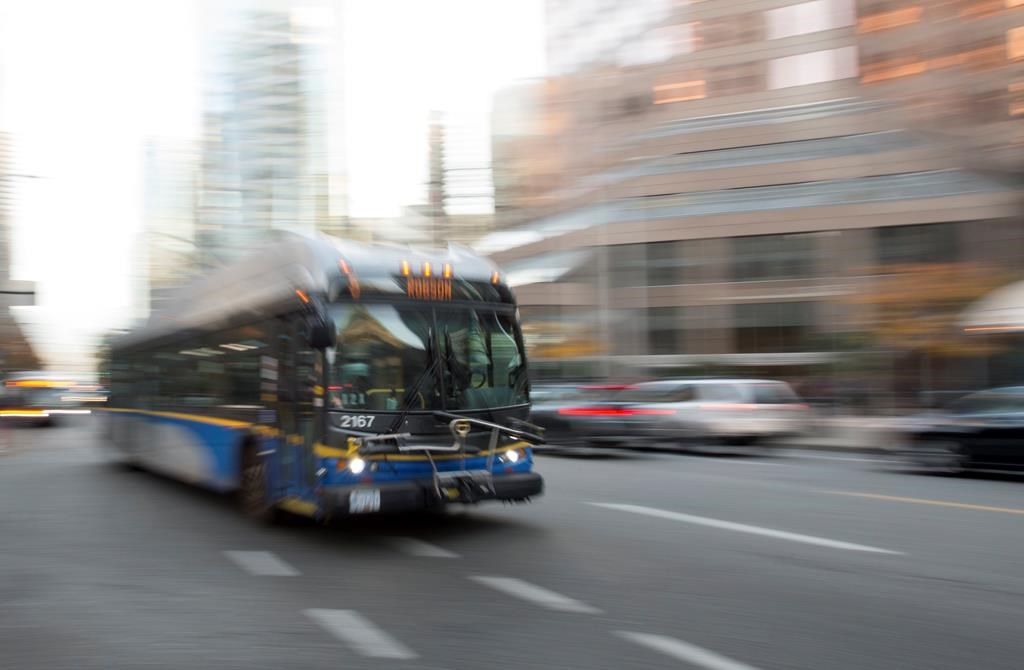With Coast Mountain Bus Company (CMBC) workers escalating job action, the role of overtime in the Metro Vancouver transit system is in the spotlight.

A maintenance worker overtime ban has led to the cancellation dozens of SeaBus sailings and begun to affect the number of buses on the road. An overtime ban by drivers is now anticipated to reduce service by up to 10 per cent.
So how much does the system rely on overtime?
According to TransLink, CMBC spent $19.3 million on overtime for transit operators and $8.2 million for maintenance worker overtime last year.
Operations OT accounted for 7.69 per cent of pay for operators and 7.43 per cent for maintenance workers in the last 12 months.

That’s significantly higher than the provincial average, according to SFU economics professor Simon Woodcock.
Across all B.C. sectors, Woodcock said about 2.6 per cent of pay last year was overtime.
But Woodcock cautioned that reliance on OT varies drastically by sector. In forestry, for example, he said it’s over 12 per cent, and in mining it’s 10 per cent.

Get daily National news
“There are definitely sectors of the economy where overtime is an important part of a pay,” said Woodcock.
“This varies over time as well, because overtime is one of the ways that employers can cut. It’s something that employers rely on to flexibly adjust the size of their workforce.”
According to TransLink, the system does not “rely” on overtime to operate.

But spokesperson Jill Drews acknowledged it was an important part of the equation.
“It’s really necessary in an industry like transportation or public transit because it allows us to offer this system in the most efficient way,” said Drews.
“It gives us that flexibility to be able to enhance service when necessary and to cover off when maybe there’s a short-term demand in service that’s above and beyond what we normally see.”
Drews said using overtime means the company does not need to have people on standby who are not working, while allowing workers to pick up overtime pay on a voluntary basis.
Drews pointed to trolley wires that were downed on Thursday night as an example. She said to respond to rare occasions like that without OT would mean keeping a crew on shift, idle, while collecting pay.
But the union representing the 5,000 transit workers taking job action disagrees with the idea the system doesn’t rely on overtime to run.
“Right now we’re working our full shifts, but we’re not working overtime. What is the impact?” said Unifor western director Gavin McGarrigle.

When it comes to maintenance workers, TransLink admits the labour shortage of skilled workers is a factor that contributes to its use of overtime.
Drews said that’s why the company was offering a $10,000 annual pay boost at the top of the salary grid.
But McGarrigle argued that still won’t bring mechanics in line with their counterparts on the SkyTrain system.
“The reality is, if you’re coming in as the skilled trades, electricians or heavy duty mechanic and you’re wanting to apply on the TransLink, are you going to go to SkyTrain where you’re paid about three bucks an hour more?” he said.
At the end of the day, Woodcock said using overtime in the transit system may simply make more sense than having a larger number of workers doing fewer hours.
“I wouldn’t be surprised if over the course of a year the number of drivers they need to have on the road at any point in time might vary in response to kind of seasonal demand,” he said.
“When school’s in session, they probably have to run more buses, for example, than when it’s not. And in the wintertime, drivers are probably more likely to get sick.”
Bus drivers are expected to continue to refuse overtime shifts next Monday, Wednesday and Friday.








Comments
Want to discuss? Please read our Commenting Policy first.